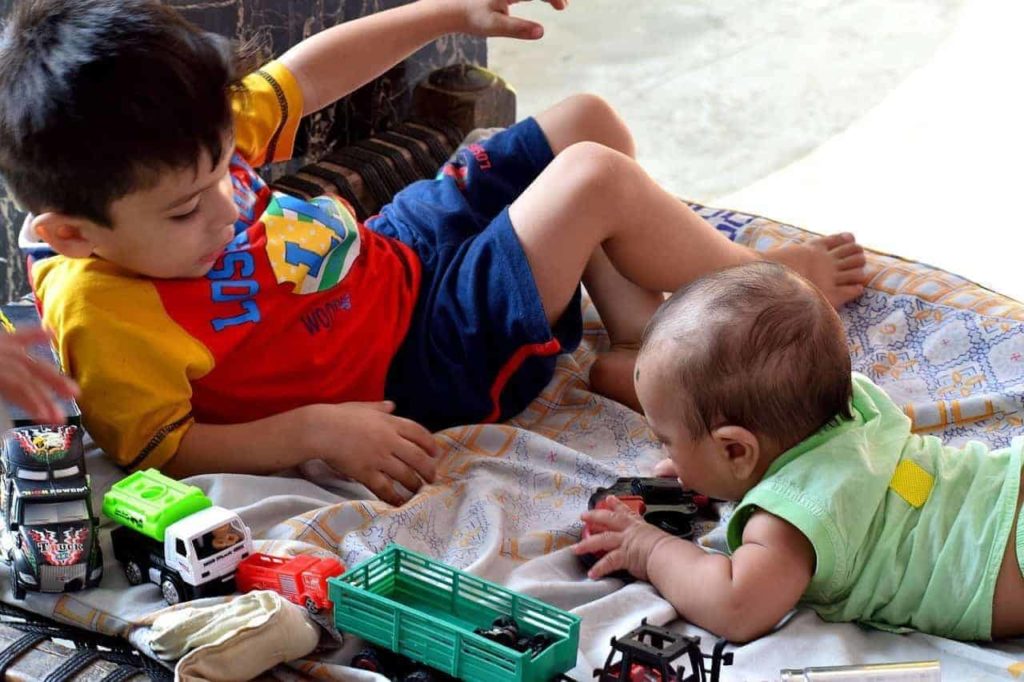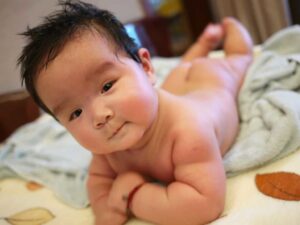
By Helen Burns
The Science of Birth Order! It has been the topic of controversy between psychologists over the last century.
Theory of Birth Order
While a school of researchers strictly maintain that there is a definite relation between how a child will grow up and his order of birth within the family, others still argue that there is no concrete relation to support this and these claims are merely a way of fitting our personal observations and perceptions into a definite scientific model. Mostly, both of these theories are equally likely as there is no definite evidence to support either.
Firstborn and Youngest Child
History shows that most of the Nobel Laureates and scholarship winners are firstborn. As has been suggested, this is primarily because of the higher IQs and pronounced genetic and psychological causes. Researchers argue that any firstborn will have a kind of status quo for leadership.
They are usually accustomed to taking charges and leading a situation head-on, primarily because the eldest in any family usually has to pave the way for their younger siblings. Contrast this with the youngest in any family. It has been hypothesized that younger brothers usually are the spoilt ones usually because they are always pampered by everyone in their family and they never let go of being the “baby” in the family.
Being always waited on usually changes the social interactions one has with society. But the biggest brunt is usually felt by the middle sibling. This is primarily because they tend to be looked on as having to perform at least as much as their elder peer and yet they observe their younger siblings get preferential treatment all the time. This puts a kind of pressure from both sides.
Dethronement
Alfred Adler, Austrian psychiatrist, well known within the field of child psychology, coined the theory of dethronement. This theory basically looks at the psychological effects of child order and how firstborn and second-born children fall into the family system. Adler believed that birth order had a considerable effect on a child’s personality and mental state.
The firstborn has all his or her parents’ attention and energies channelled solely towards them. They are the pivot of their parents’ love. Once the second child is born, the first child is suddenly displaced and becomes subordinate to the newborn sibling; parents now divert their attention towards the second child and the firstborn experiences “dethronement”.
Middle Child
If a third child is born, it is the middle child who loses out from his or her parents’ affections the most. The second-born does not experience dethronement. The youngest child automatically gets pigeonholed as “the youngest” and thus, gets particular interest from the parents. Often the youngest children are considered to be doted upon to the point of being spoilt or excessively pampered. The eldest child is always encouraged to supervise and take care of their younger siblings.
Which Sibling is the Most Responsible Due to Birth Order?
The sense of responsibility, although sometimes excessive, as well as a sense of superiority may lead to neurosis with a higher tendency for the eldest child to abuse substances. The middle child is the one that loses out most as they are neither “here nor there” this does, however, instigate an urge to develop and be successful, although their subordinate role in the family leads them to be rebellious children.
Genetics: Does it play a role?
Studies have established links between birth order, intelligence and personality. Firstborn children will be glad to hear that a study carried out in Norway showed that firstborn babies have a higher IQ than their siblings this is, however, probably not due to genetics but rather to the role older siblings play in the family unit and vis-Ã -vis their brothers and sisters. Scientists have found few links between genetics and birth order and genetic testing has proved inconclusive. Studies are still far from being fully developed and require further research for full scientific validation.
Personality and Intelligence and Birth Order
Rather than using genetics to explain personality and intelligence, scientists have taken a more pragmatic approach. For example, the more children one has, the lower the chances one has of being firstborn.
Someone born in a two children family has a 50% chance of being firstborn but this probability falls the mother children a family has. Furthermore, financial resources might be limited and diminish as more children are born into a family. The firstborn might benefit more from resources than the fifth child for example as resources may have dwindled considerably by the time the last child is born.
Darwin’s theory and Birth Order
It has been hypothesized that Darwin’s theory of Evolution with respect to the survival of the fittest is highly applicable in any familial setting. Parents are usually not able to distribute their love equally to all their children. As a result, most children have to develop strategies to take any unoccupied niche of attention. Although this provides a kind of competitive atmosphere, weak-willed children often buckle at the pressure.
Stereotypical models of families have shown that elder brothers are usually motivated and authoritative, middle ones are constantly compared to their siblings and indirectly belittled by the comparison and youngest siblings are usually dreamers.
Examples to support this fact include Lincoln who was the eldest child and the revolutionary, Marx who was the youngest in their respective families, among numerous others. However, it has also been argued that we have no real way of corroborating this fact primarily because we do not have sufficient data to corroborate these claims. We merely fit our findings into a convenient pattern which we formulate to suit our needs.
What recent studies show about birth order
But recent studies have shown that the eldest child in any family usually has a 1 to 3 point higher IQ than their immediate sibling, while the difference is around 1 point between the 2nd and the 3rd. The difference gets inconclusive after that point. I
t has been theorized that this is mainly because the eldest child in any family usually has the highest amount of interaction with their parents in childhood. Being in the constant company of elders helps them to build sound foundations and receive a lot of intellectual stimuli.
Not only that, they usually have to look after their younger siblings, thus helping them develop a sense of authority and responsibility. The middle one, on the other hand, has to handle interactions from both sides; they are usually good team players and can view the world from others’ perspectives.
Traits like openness to radical ideas and high social interactions, on the other hand, are attributed to the youngest of siblings. Nevertheless, these traits become of less significance if the gaps between their birth years are more than five, as psychologists have pointed out.
This is mainly because parents then divert most of their attention to successive children. These children are usually known as “pseudo firstborn” because they tend to receive almost as much attention from their adult peers as had their elder brother or sister.
Most of this data, however, breaks down when the children chosen for the study are taken from different families. This is mainly because genetic traits usually dominate the psychological ones when the sample space is from different contexts. So no matter whether a relation between birth order and personality exists or not, the main factor, at the end of the day is always dependant on the experiences a child gains while growing up.









